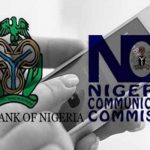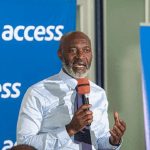Banking
Fitch Affirms Zenith Bank, UBA, GTBank, Access Bank Ratings
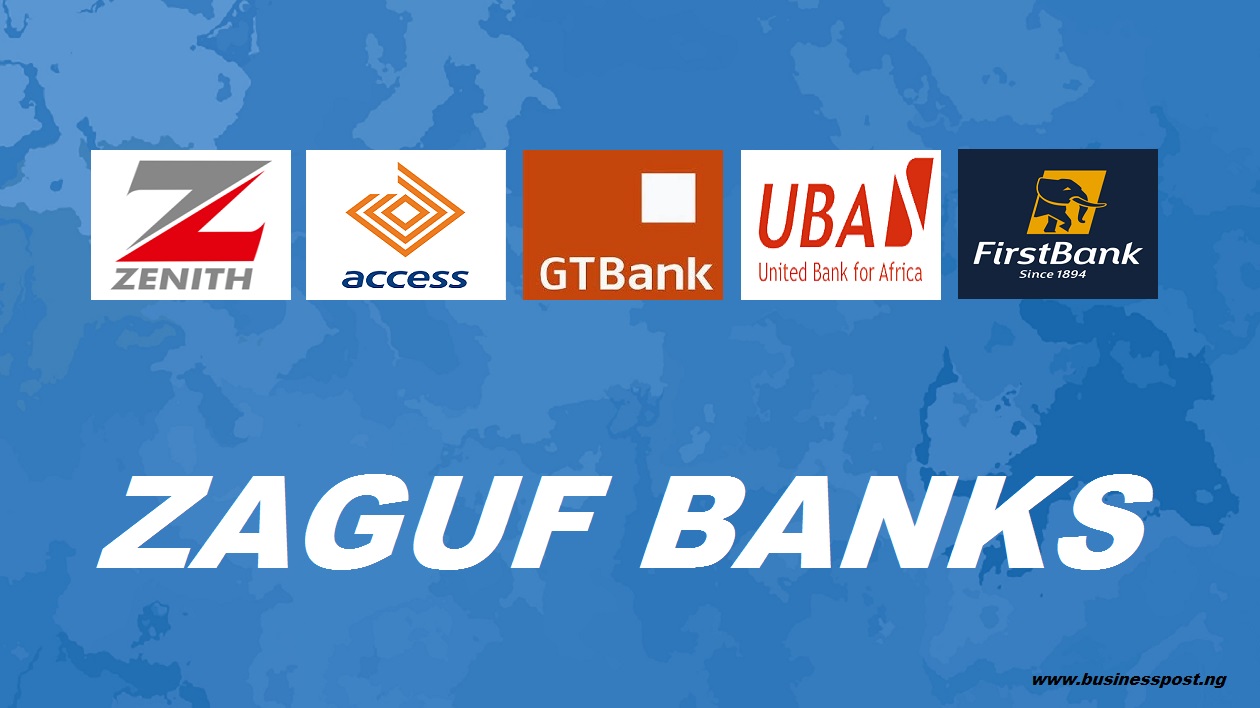
By Dipo Olowookere
Fitch Ratings has announced affirming the ratings on Zenith Bank, United Bank for Africa (UBA), Guaranty Trust Bank (GTBank) and Access Bank [ZUGA Banks], all with stable outlook.
In a statement issued by the agency, it was stated that the Long-Term Issuer Default Rating (IDR) on Zenith Bank and UBA were left at ‘B+’, while the Long-Term Issuer Default Rating (IDR) on Access Bank was affirmed at ‘B’, the Long-Term Foreign Currency Issuer Default Rating (IDR) on GTBank was affirmed at ‘B+’.
Fitch said the Viability Rating (VR) of Zenith Bank is among the highest it assigned to a Nigerian bank, reflecting the lender’s well-entrenched domestic franchise and market share.
“Zenith Bank is particularly strong in the prime corporate segment with a growing focus on retail banking. The bank’s franchise strength, management quality and clear strategy have allowed it to outperform peers through several cycles,” it said.
It further said the bank’s financial metrics are also strong compared with peers, pointing out that solid earnings generation and profitability (operating profit/risk-weighted assets of 7.1 percent in 1H19) reflect good margins, high levels of non-interest revenue and good cost control. Loan impairment charges have increased moderately and reflect some asset quality deterioration.
According to Fitch, Zenith Bank’s impaired loans/IFRS 9 Stage 3 ratio was 8.5 percent at end-1H19 (slightly up from 9.0 percent at end-2018) with loan loss allowance coverage at a comfortable 90 percent. Impaired loans rose in 2018 from consistently low levels due to a single large problem loan, highlighting the bank’s sensitivity to credit concentrations by obligor and industry.
It said the bank’s high capitalisation is a rating strength, with a regulatory total capital adequacy ratio of 23.4 percent at end-1H19, saying this is comfortably above the minimum 15 percent regulatory requirement (excluding its DSIB buffer).
For UBA, Fitch said its VR also reflects a strong franchise in Nigeria, as highlighted by market shares and a sizeable retail and current and savings accounts (CASA) deposit base, which translates into pricing power over smaller peers.
UBA’s overall franchise, Fitch said, is strengthened by a network of 19 subsidiaries across Sub-Saharan African (SSA) countries outside of Nigeria, which positions the bank to serve corporate customers operating across the continent and capitalise on trade flows. Operations across the rest of Africa (28% of assets at end-1H19; 41% of net income in 2018) provide a valuable source of diversification, particularly given the small contribution of each country.
It said execution on strategy has been particularly strong, as highlighted by exceptional retail deposit growth, increasing earnings contributions from the rest of Africa business and generally strong financial performance during challenging economic conditions.
However, it noted that loan quality remains weak as its impaired (Stage 3 under IFRS 9) loans ratio (5.6 percent at end-1H19) remains low relative to the sector average, but a large stock of Stage 2 loans (24 percent of gross loans at end-1H19) that are concentrated by single-borrower and derive from troubled sectors such as power and oil and gas, present a risk to UBA’s financial profile.
On the part of GTBank, Fitch said the IDRs and National Ratings are driven by the bank’s intrinsic creditworthiness, as defined by its VR, the highest assigned to a Nigerian bank. It said the VR also considers the bank’s strong financial metrics and high performance ratios, comfortable capital buffers and highly concentrated loan book.
It said the lender’s strong earnings support capitalisation and capital adequacy is a rating strength.
“GTB’s Fitch Core Capital/risk weighted assets ratio reached a high 26.7% at end-June 2019 and the bank’s internal target is to maintain regulatory capital ratios in excess of 17%, comfortably above the 15% prudential minimum required.
“Asset quality ratios compare well with peers and efforts to recover impaired loans are proving successful. The impaired loans/total loans ratio is on a declining trend, improving to 6.8% at end-June 2019. Loan loss reserve coverage reached 80%, which appears adequate considering available collateral. GTB’s IFRS 9 Stage 2 loans were equivalent to approximately 11% of loans at end-June 2019, which is broadly in line with close peers,” it said.
Fitch further said GTBank’s balance sheet is liquid. Loan deleveraging continued in 1H19, while deposit inflows are still positive (up 6%). Excess liquidity continues to be invested into Nigerian government securities. Regulatory pressure to encourage banks to lend to the real economy may result in positive loan growth during 2H19. Liquidity management is sound in both foreign and local currency.
For Access Bank, the rating agency said the acquisition of Diamond Bank in the first quarter of 2019 increased the lender’s consolidated assets by around 30 percent, creating Nigeria’s largest bank, with a 23 percent share of deposits (previously 11 percent).
“Following the acquisition, Access Bank’s traditional corporate business model is more balanced across retail and SME segments. Management’s objectives are to pursue a retail-focused, digitally-driven, growth strategy and position the bank as a regional leader in Africa.
“If achieved, this will boost Access Bank’s profile, but factors such as franchise, business model and strategic objectives currently have only a moderate influence on the bank’s ratings,” it said.
It added that, Diamond Bank’s asset quality was weak but management is successfully executing on a plan to write off impaired loans and focus on recoveries. The impaired (Stage 3) loans/gross loans ratio, which had exceeded 10% immediately following Diamond’s acquisition, fell back to 6.8% at end-June 2019.
This is broadly in line with ratios displayed by the most highly rated Nigerian banks (around 7%) but Access Bank’s share of Stage 2 loans as a proportion of gross loans is still fairly high at around 20%. Total loan loss coverage of Stage 3 loans is high at 112% (49% immediately post-acquisition), but specific coverage of Stage 2 loans is still low.
Banking
Proposed Bidvest Bank Acquisition by Access Bank Hits Regulatory Brick Wall
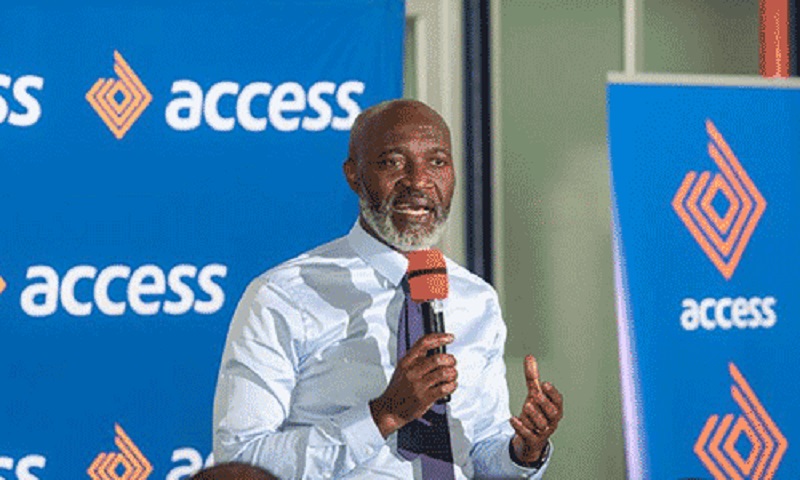
By Aduragbemi Omiyale
The proposed acquisition of South African financial institution, Bidvest Bank by a Nigerian lender, Access Bank Plc, has hit a brick wall.
Access Holdings Plc, the parent company of the Nigerian bank, had announced on December 12, 2024, its intention to completely takeover Bidvest Bank.
Talks regarding the 100 per cent stake acquisition began between the two banks and January 26, 2026, was fixed as the long-stop date by which all conditions required for the completion of the deal.
However, the day has come and gone with the conclusion of the transaction still hanging, according to Access Bank in a statement on Tuesday, February 10, 2026.
The company disclosed that certain conditions, including regulatory requirements, were not fully met as of the expiration of the long-stop date.
While Access Bank thanked the board and management of Bidvest for their patience and support throughout this process, it noted that the brick wall experienced in the transaction “reflects the complexities and extended timelines associated with multi-jurisdictional regulatory and transactional processes.”
However, the chief executive of Access Bank, Mr Roosevelt Ogbonna, said the organisation remains “constructively engaged with stakeholders on this transaction towards finding a potential path to closure.”
“This initial outcome does not diminish our confidence in South Africa’s financial ecosystem,” he declared, pointing out that the lender remains “focused on building Africa’s most respected financial institution, strengthening our trade finance capabilities and delivering long-term value to customers, partners and communities across all our markets.”
Banking
CBN Grants Bank of Industry Approval to Operate Non-Interest Banking
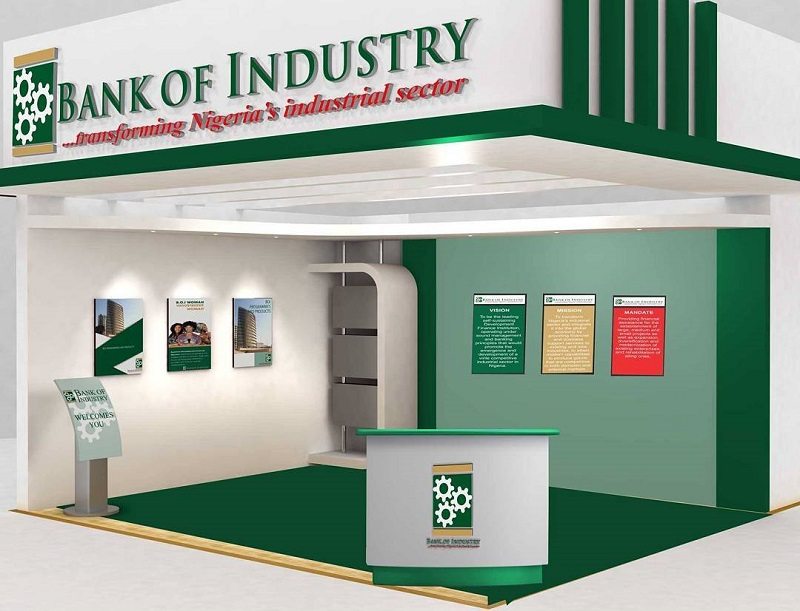
By Adedapo Adesanya
The Bank of Industry (BoI) has secured regulatory approval from the Central Bank of Nigeria (CBN) to offer Non-Interest Banking (NIB) services, marking a major expansion of its financing framework.
The approval was disclosed in a statement by the BoI Managing Director, Mr Olasupo Olusi, on Sunday, February 8, 2026.
The move is expected to strengthen the bank’s role in promoting sustainable industrial development and improving access to finance for underserved and high-impact business segments across Nigeria.
With the approval, BoI is authorised to commence non-interest banking operations, providing ethical, asset-backed financing options that prohibit interest and promote risk-sharing.
The initiative aligns with growing demand for alternative financing structures that support inclusive growth and social development objectives.
Mr Olusi described the approval as a significant milestone in the bank’s growth and long-term development agenda, adding that it positions BoI to deepen its contribution to Nigeria’s industrialisation drive through tailored financial solutions.
“This development marks a significant milestone in the Bank of Industry’s growth and long-term development agenda,” Olusi said.
“It positions the bank to further advance Nigeria’s sustainable and inclusive industrial development through tailored financial solutions for underserved and high-impact business segments.”
“Under this framework, BoI will be able to finance assets and raw materials for customers using approved non-interest banking products,” he added.
Mr Olusi noted that the approval underscores the CBN’s confidence in BoI’s governance and commitment to responsible financing.
He said the licence would allow the bank to scale its operations, introduce innovative financing solutions, deepen support for Micro, Small and Medium Enterprises (MSMEs), and reach a new category of borrowers who were previously unable to access BoI’s funding.
Reconstructed in 2001 from the former Nigerian Industrial Development Bank (NIDB) Limited, BoI was originally incorporated in 1959 to transform the country’s industrial sector by providing long-term, low-interest financing and advisory support to various enterprises.
The introduction of a non-interest banking window is expected to broaden BoI’s financing toolkit and attract new pools of ethical and faith-based capital.
Banking
Yemi Kale for Second Ecobank Customer Forum on Regional Integration
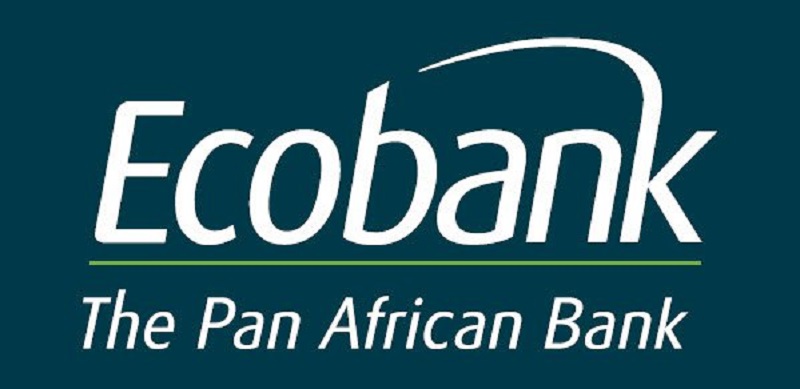
By Modupe Gbadeyanka
The Group Chief Economist and Managing Director for Research and Trade Intelligence at the African Export-Import Bank (Afreximbank), Mr Yemi Kale, has been pencilled down to deliver the keynote address at the second Ecobank Customer Forum.
The programme, themed Strengthening Regional Integration for Economic Transformation, will take place at the Ecobank Pan-African Centre (EPAC) in Lagos.
The forum, organised by the bank’s Fixed Income, Currencies and Commodities (FICC) Business (Treasury), is designed to examine critical issues shaping Nigeria’s and Africa’s economic outlook in 2026, with particular focus on trade, financial markets, foreign exchange liquidity and regional integration, especially as the African Continental Free Trade Area (AfCFTA) agreement enters a strategic phase of implementation.
The Regional Treasurer for Ecobank Nigeria Limited, Mr Olumide Adebayo, said the one-day programme reinforces the lender’s role as a trusted financial partner and customer-focused institution, with the intention to foster dialogue, support informed decision-making, and deeper regional economic integration across Africa.
According to him, the seminar will open with welcome remarks by the Managing Director/Regional Executive of Ecobank Nigeria, Mr Bolaji Lawal, who will underscore the bank’s commitment to supporting customers and driving inclusive growth through strategic dialogue, innovation and pan-African collaboration.
The keynote address, titled The Future of Trade in Africa: Harnessing the AfCFTA for Economic Transformation, will be delivered by Mr Kale and will provide insights into Africa’s trade prospects and the transformative potential of the AfCFTA.
The forum will feature two high-level panel discussions: Balancing the Risk between Interest Rate and Exchange Rate: Business Expectations and Outlook in 2026, and Export Proceeds, Oil Receipts and Remittances in 2026: Exploring Options that Best Support FX Liquidity and Flows in Nigeria.
The event would be moderated by Messrs. Aruoture Oddiri, Host and Producer of Global Business Report on Arise News and Barnabas Vajeh of Ecobank Nigeria Limited.
-

 Feature/OPED6 years ago
Feature/OPED6 years agoDavos was Different this year
-
Travel/Tourism9 years ago
Lagos Seals Western Lodge Hotel In Ikorodu
-

 Showbiz3 years ago
Showbiz3 years agoEstranged Lover Releases Videos of Empress Njamah Bathing
-

 Banking8 years ago
Banking8 years agoSort Codes of GTBank Branches in Nigeria
-

 Economy3 years ago
Economy3 years agoSubsidy Removal: CNG at N130 Per Litre Cheaper Than Petrol—IPMAN
-

 Banking3 years ago
Banking3 years agoSort Codes of UBA Branches in Nigeria
-

 Banking3 years ago
Banking3 years agoFirst Bank Announces Planned Downtime
-

 Sports3 years ago
Sports3 years agoHighest Paid Nigerian Footballer – How Much Do Nigerian Footballers Earn





